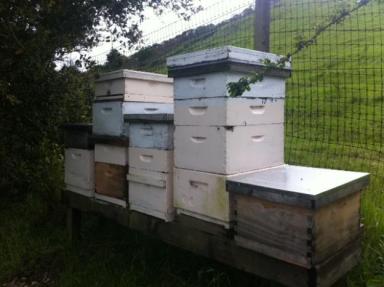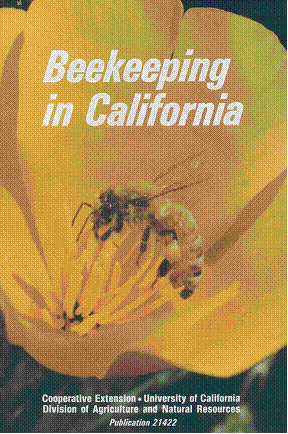-
|
-
|
| E-Mail Forum | |
|
|
|
| Beekeeping in Richmond March 26, 2011 |
|
|
In response to “TOM BUTT E-FORUM: Urban Goats - and More, I was asked, “Do you happen to know if there any ordinances that cover backyard beekeeping?’
There is in the Richmond Municipal Code the Section 9.24.090 – Permit required for keeping of bees, which states ” It is unlawful for any person to keep bees or maintain an apiary within the City of Richmond without having first obtained from the health department a permit so to do, provided, however, that nothing herein shall be construed to make unlawful the keeping of bees which are at all times confined within a box, cage or other container for the purpose of observation and study.” This section (Ordinance 1746) was passed in the 1960s. The City of Richmond does not have a health department, and the Contra Costa County Health services neither requires nor offers permits for bees. Bottom line, apparently you can keep bees in Richmond as long as they don’t become a nuisance. By copy of this to the city attorney, I will request that 9.24.090 be agendized for repeal. However, there may be state laws that govern beekeeping.
STATE LAWS RELATING TO BEEKEEPING
From the website of the Contra Costa county Agricultural Commissioner: Apiary - Each year all beekeepers in the county are required to register their colonies with the Agricultural Commissioner. This process is designed to be beneficial to beekeepers as well as people who live and work near bee yards. It helps us know where hives are located and helps resolve certain complaints and issues concerning bees in our county. The possibility of Africanized Honeybees entering our county makes it especially important that we know where colonies are being kept. There is $ 10 registration fee. Blank forms are available at our office. If you have been stung multiple times by honeybees or ground nesting wasps, you can possibly get assistance from the Contra Costa County Mosquito and Vector Control Agency at 925-685-9301.
|
|
|
|


 The following is from a 1987 publication, “
The following is from a 1987 publication, “